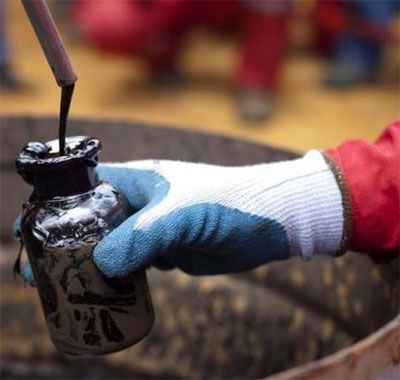Saudis are interested in expanding their relationship with India, given it is becoming the main driver of crude demand growth in Asia
 Almost unnoticed, India is starting to exercise increasing influence on crude oil markets in Asia.
Almost unnoticed, India is starting to exercise increasing influence on crude oil markets in Asia.
The South Asian nation has doubled imports to almost 4 million barrels per day (bpd) in the past decade, in the process overtaking Japan, Germany and South Korea to become the world's third-biggest importer behind China and the United States.
Its importance to the outlook for crude oil over the next decade becomes even more apparent in the light of slowing demand growth in China, the likelihood of at best steady consumption in much of the developed world and declining demand in Japan.
Two recent events underscored the importance that India is assuming in Asian crude oil markets: the visit by a senior official of Saudi Arabia's state oil giant and talks between Indian refiners and Iraq over filling strategic storage.
The main news from the visit of Ahmed Al-Subaey, Saudi Aramco's executive director for marketing, to New Delhi last week was that the kingdom is ready to boost output in coming months to meet rising global demand.
That was information useful to market players, but what wasn't discussed in public was what the Aramco executive was talking about with the Indian oil officials he met.
It doesn't require much imagination to conclude that the Saudis are interested in expanding their relationship with India, given it is becoming the main driver of crude demand growth in Asia, something Al-Subaey acknowledged.
India imported 3.964 million bpd in the first four months of the year, a decline of 0.6 per cent over the same period in 2014.
However, import growth was affected by refinery maintenance in April and it's expected to accelerate over the rest of the year, with full-year imports expected to exceed 4 million bpd.
Saudi Arabia supplied about 760,000 bpd to India in the first four months of the year, a gain of 4.6 per cent over the same period last year.
But the Saudis will be well aware that their oil will face competition from Middle East rivals in coming months, especially if Iran is successful in getting Western sanctions relaxed and Iraq continues to pump more crude.
Competition to supply India
Iran shipped about 325,000 bpd to India in the first four months of 2015, a decline of 50.6 per cent over the same period a year earlier.
The Iranians will be targeting to get that market share back and reclaim their position as India's preferred Middle Eastern supplier.
The Iraqis increased their exports to India by 12.9 per cent to about 490,000 bpd in the first four months, and seem determined to grab an increasing share.
Indian Oil Corp and Hindustan Petroleum Corp held talks earlier this month with Iraq's national oil company to buy 4 million barrels of Basra light crude oil for India's strategic petroleum reserves (SPRs), Reuters reported on June 3, citing three sources with knowledge of the discussions.
The talks centred around supplying 8 million barrels of crude for SPRs in the coastal city of Vizag in southern Andhra Pradesh state.
Two other SPRs are expected to be completed by the end of the year, holding 29.3 million barrels.
However, even with that storage, India will only have reserves equivalent to about 13 days consumption, well below the 90 days the International Energy Agency mandates its members countries should hold.
This means that in coming years India is likely to boost its storage capacity and thus import more oil than it consumes.
While not on the same scale as the SPR programme being undertaken by China, India will nonetheless be a driver of demand growth in Asia, most likely at a time when China has filled its SPRs and is transitioning its economy to a lower fuel intensity as it moves more to consumer-led growth and away from export-led industries.
In the current market, where oil is well-supplied and the Organisation of the Petroleum Exporting Countries (OPEC) and other major producers show little inclination to cut output, it won't surprise to see more exporters beating a path to New Delhi.
Clyde Russell is a Reuters columnist. The views expressed are his own.







 © 2025 Rediff.com -
© 2025 Rediff.com -